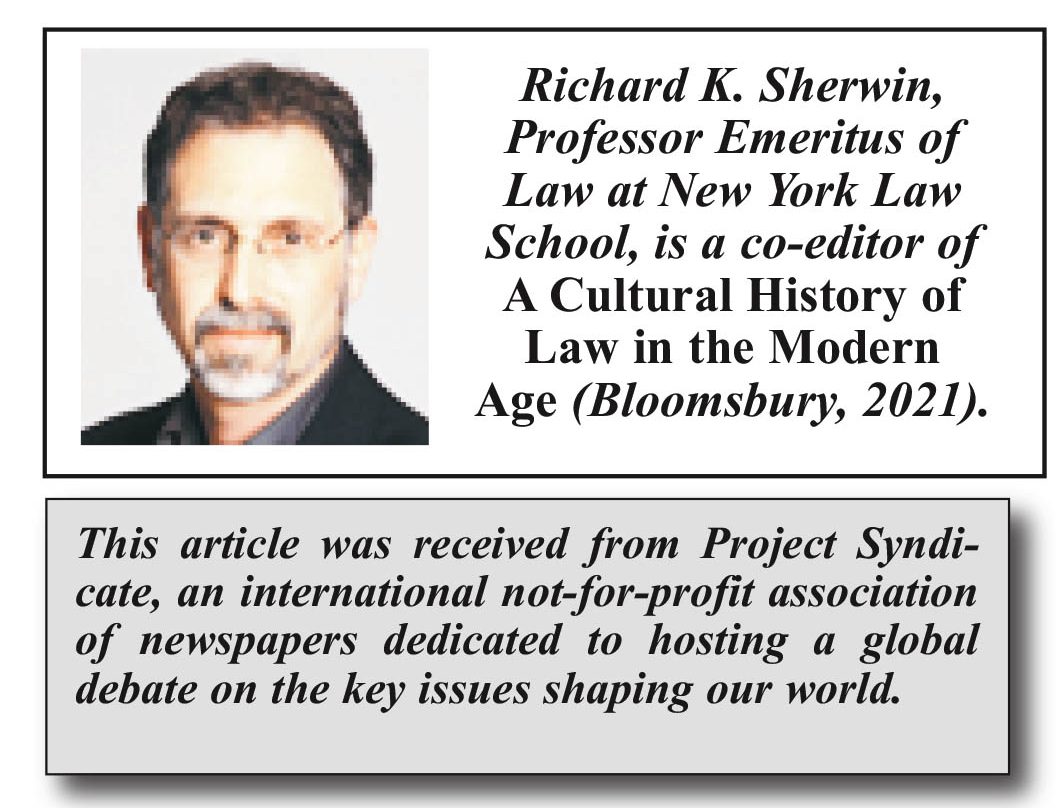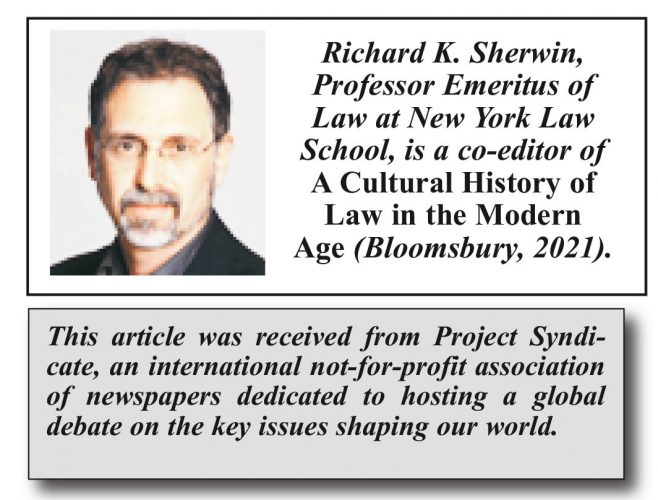NEW YORK – Robert F. Kennedy, Jr., scion of one of America’s most storied political families, is running for president of the United States. But unlike his late uncles – President John F. Kennedy and Senator Ted Kennedy (who unsuccessfully ran for president in 1980) – or his late father, Senator Robert F. Kennedy (who was assassinated during his own presidential run), RFK Jr. is not campaigning as a Democrat. Instead, he is running as the head of a newly formed third party, We the People. Thus unfolds the latest chapter in the bizarre and increasingly dangerous deformation of contemporary American politics.
Many political commentators have taken Kennedy to task for launching a spoiler campaign that could peel disenchanted Democrats away from President Joe Biden and hand the White House to Donald Trump. According to a Siena College poll of voters in six battleground states (Arizona, Georgia, Michigan, Nevada, Pennsylvania, and Wisconsin), more Democrats than Republicans (18% versus 16%) appear likely to back Kennedy. Little wonder the billionaire Republican megadonor Timothy Mellon has been bankrolling Kennedy’s super PAC (an ostensibly independent organization that can legally raise and spend unlimited sums on a candidate’s behalf).
Kennedy’s choice of running mate, Nicole Shanahan, a 38-year-old patent attorney and past supporter of Democratic causes and candidates, offers further evidence that Kennedy is targeting Democratic voters. Shanahan calls herself a disenchanted Democrat, and she has publicly invited like-minded others to jump onto the Kennedy bandwagon. As part of her 2023 divorce settlement with Google co-founder Sergey Brin, she reportedly sought more than $1 billion (a mere 1% of his estimated net worth). That sum would place her in an uncommonly advantageous position to help finance the complex and expensive effort to get Kennedy on the ballot in all 50 states.
Notwithstanding all the uncertainties Kennedy’s campaign has created, one thing is clear: populism is on the rise in both parties, from the left and the right. Both Trump and Kennedy have converged on classic populist themes, though with a few intriguing variations. For example, compare Trump’s 2017 inaugural address to Kennedy’s recent “state of the union” speech. Their central trope is identical: the loss and restoration of American greatness.
Trump’s grim narrative of America’s fall from greatness features “rusted-out factories scattered like tombstones,” infrastructure that “has fallen into disrepair and decay,” with the “wealth of our middle class … ripped from their homes and distributed across the entire world,” and with “millions and millions of American workers left behind.” While Washington elites prosper, “the people have borne the cost.” Trump promises to reverse the decline by putting “America first.”
Kennedy, too, sees a landscape littered with carnage. But his narrative gives prominence to “chronic illness,” “depression,” “mental illness,” and “loneliness.” Like Trump, he complains of dilapidated infrastructure and a middle class that has been “hollowed out.” And like Trump, he blames the elites: “All the new wealth of the last generation has gone to the billionaires and to transnational corporations.” But, from Kennedy’s perspective, the greatest evil of all is that America has become “the sickest country on Earth.” His pledge is to ‘make America healthy again.’
Kennedy’s emphasis on health reflects his public work as an environmental lawyer and, in recent years, as a staunch anti-vaccine crusader. He sees a cabal of sinister corporations and public officials conspiring to poison the environment and the body politic – one body at a time. At the height of the pandemic, he falsely claimed that the COVID-19 vaccines were “proven to have negative efficacy, causing people to be more prone to infection than doing nothing at all.” He reportedly even went so far as to assert that COVID-19 was “ethnically targeted” to spare “Ashkenazi Jews and Chinese people.”
If Kennedy’s emphasis on healing suggests someone who has been through “recovery,” that is because he has. Following the trauma of losing both his father and his uncle to assassins’ bullets, Kennedy battled, and ultimately overcame, an addiction to heroin.
Like Kennedy, Shanahan also appears to be channeling personal affliction. She describes grappling with infertility, as well as the difficulties associated with raising her five-year-old daughter, Echo, who suffers from autism, which Shanahan says she spends 60% of her time researching. “Our children are not well,” Shanahan tells us. She firmly believes, despite numerous scientific studies disproving the claim, that vaccinating children has caused a steep rise in autism cases. She wants to stop pharmaceutical corporations from “contaminating” science and “capturing” regulatory agencies. Evincing a distinctly QAnon-style paranoia, she demands that they stop “guarding” the “mysteries” that “we can solve.”
No one seriously believes Kennedy can win the presidency. But there is good reason to believe he could tilt the balance toward Trump by luring Democrats (including younger voters like Shanahan), some independents, libertarians, and devotees of new-age healing, as well as aging idealists still inspired by the candidate’s father and uncles.
Armed with paranoid conspiracy theories about America’s descent into chronic sickness, loneliness, and depression, Kennedy has heedlessly spread lies about the putative dangers of life-saving vaccines while mouthing platitudes about resilience and healing. To all appearances, he remains caught in a twisted fantasy that he just might be the one who will realize his father’s idealistic dreams of a better America.
The likelier outcome is a waking nightmare: an illiberal America presided over by someone RFK Jr.’s forebears would consider the country’s most dangerous domestic foe.
Copyright: Project Syndicate, 2024.







